

The Shanghai-Chengdu Expressway is a key transport corridor stretching 1,966 kilometers from Shanghai and China's coast in the east to Chengdu in the country's west.
It passes through the provinces of Jiangsu, Anhui, Hubei and Sichuan, and the giant municipalities of Shanghai and Chongqing. The expressway has provided a vital route via which the complete value chain of China's automobile industry has thrived. From power batteries, steel manufacturing, imports and exports to autonomous driving and fully automated production lines, the Shanghai-Chengdu Expressway has got it all. Let's take a look.
Guzhao Highway is constructed above the Xiangxi River, a tributary of the Yangtze River, in the middle of Central China's Hubei province. It has a reputation as the most beautiful water highway and attracts travelers from all over the country every year.
Intern Li Zihao also contributed.
The Yingwuzhou Yangtze River Bridge in Wuhan, Central China's Hubei province, was built in 2014. It is one of the longest suspension bridges in the world, with two consecutive 850-meter spans. The bridge lights are on at 7:30 pm, and the night view reminds many of the Golden Gate Bridge in San Francisco.
Intern Li Zihao also contributed.
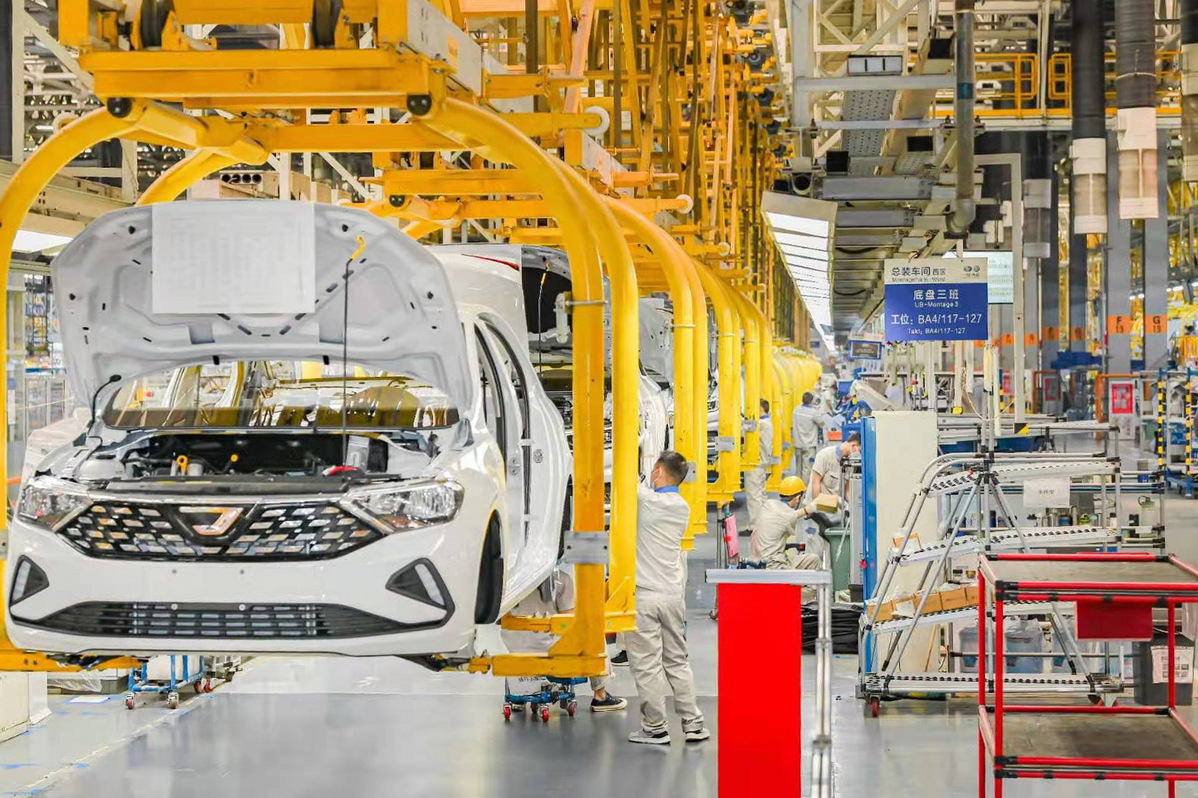
Zhang Kuihong, 79, remembers the day China's first expressway opened to traffic more than three decades ago.
"The weather was very good. Sitting in a helicopter, I saw the road reflecting the sunlight, like a golden dragon crouching on the land," said Zhang, who was deputy chief engineer of the Shanghai-Jiading Expressway.
In the dinosaur-themed Fangmaoshan Service Area in Changzhou along the G42 Shanghai-Chengdu Expressway, travelers are always surprised at seeing many sculptures of dinosaurs, eggs and giant white skeletons, which seem like scenes from Jurassic Park.
Intern Li Zihao also contributed to this story.
To date, China has a total of 160,000 kilometers of expressways, all built from scratch since the first one was put into use in Shanghai in 1988.
Although only 15.9 kilometers long, the Shanghai-Jiading Expressway opened a new chapter in China's transportation.
The Shenyang-Haikou Expressway that runs along China's coastline has promoted the development of port businesses, marine industries and tourism, and also boosted the country's foreign trade as the ports along it serve as gateways to countries on the 21st Century Maritime Silk Road.
The expressway, which will run for 3,623.55 kilometers, starts from Shenyang, Liaoning province, and runs through the provinces of Shandong and Jiangsu, Shanghai, and the provinces of Zhejiang, Fujian and Guangdong, eventually ending in Haikou, Hainan province.
Connecting special economic zones, coastal cities, national-level new areas and free trade areas, the road, commonly known as the Shenhai expressway, offers a window to China's achievements in reform and opening-up, experts said.
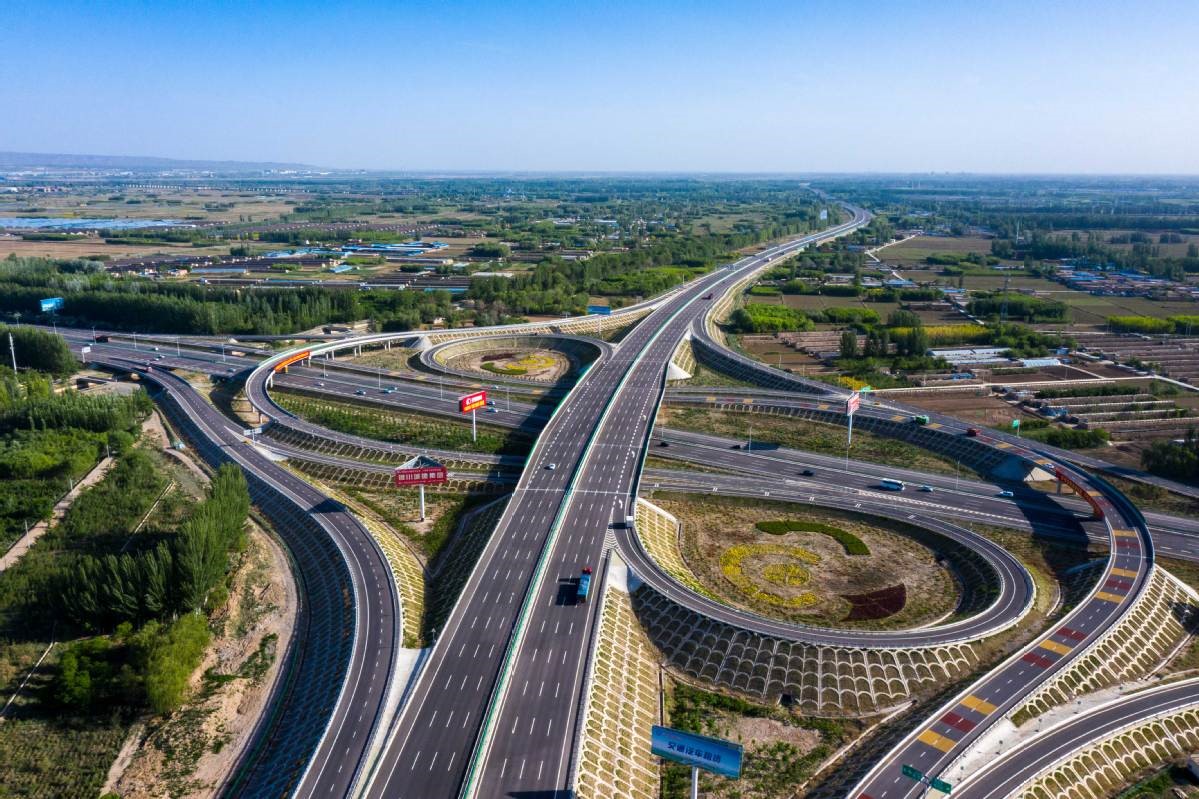
After over 60 years of development, China has grown into a strong power in the transportation sector, with mileage of high-speed trains, expressways and railways ranking first across the world, Economic Information Daily reported.
The country's total train mileage in operation hit 146,000 kilometers by the end of 2020, and highways registered 5.20 million km, expanding 7 and 64 times respectively compared to the early period of New China.
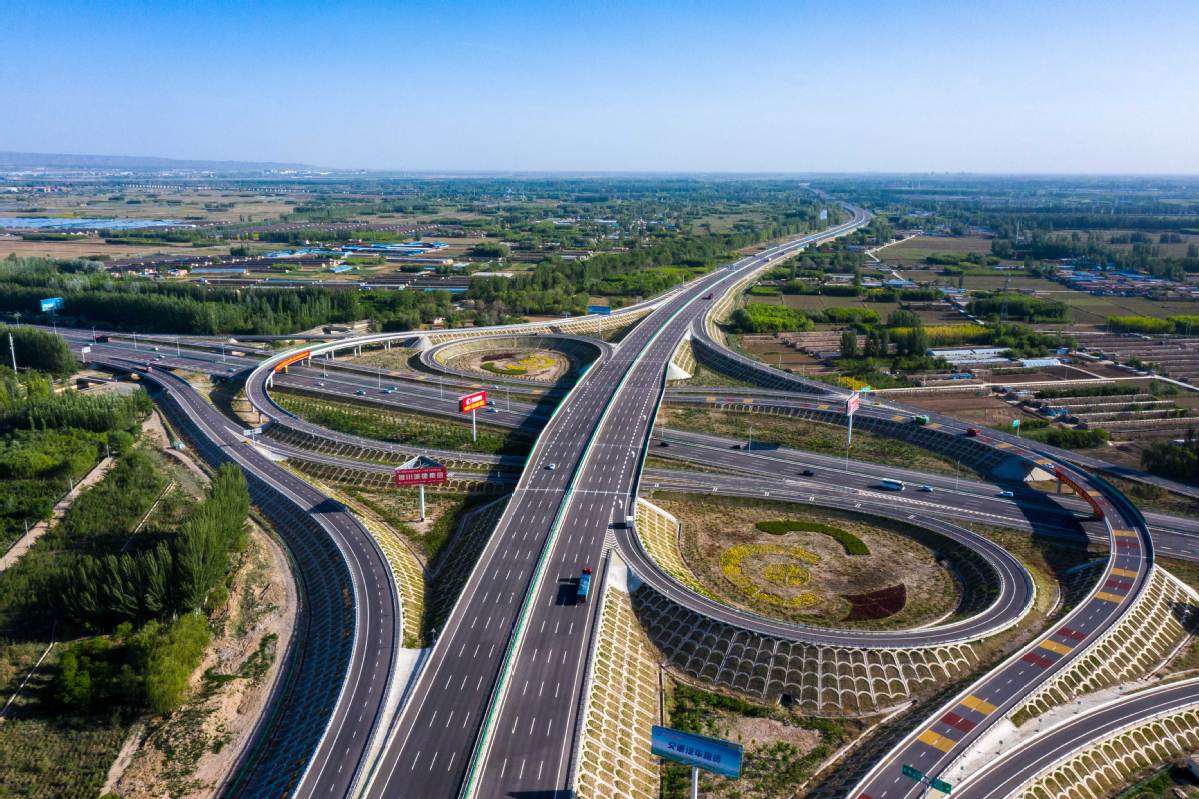
The 15-year-old Qingdao-Yinchuan Expressway has become an important channel for transporting agricultural products, including mutton from a distinctive breed of sheep, across northern China.
A vital part of the national expressway network, it starts in Qingdao, Shandong province, on the country's east coast, and ends in Yinchuan, capital of northwestern China's Ningxia Hui autonomous region. It passes through cities in the provinces of Hebei, Shanxi and Shaanxi along the way.
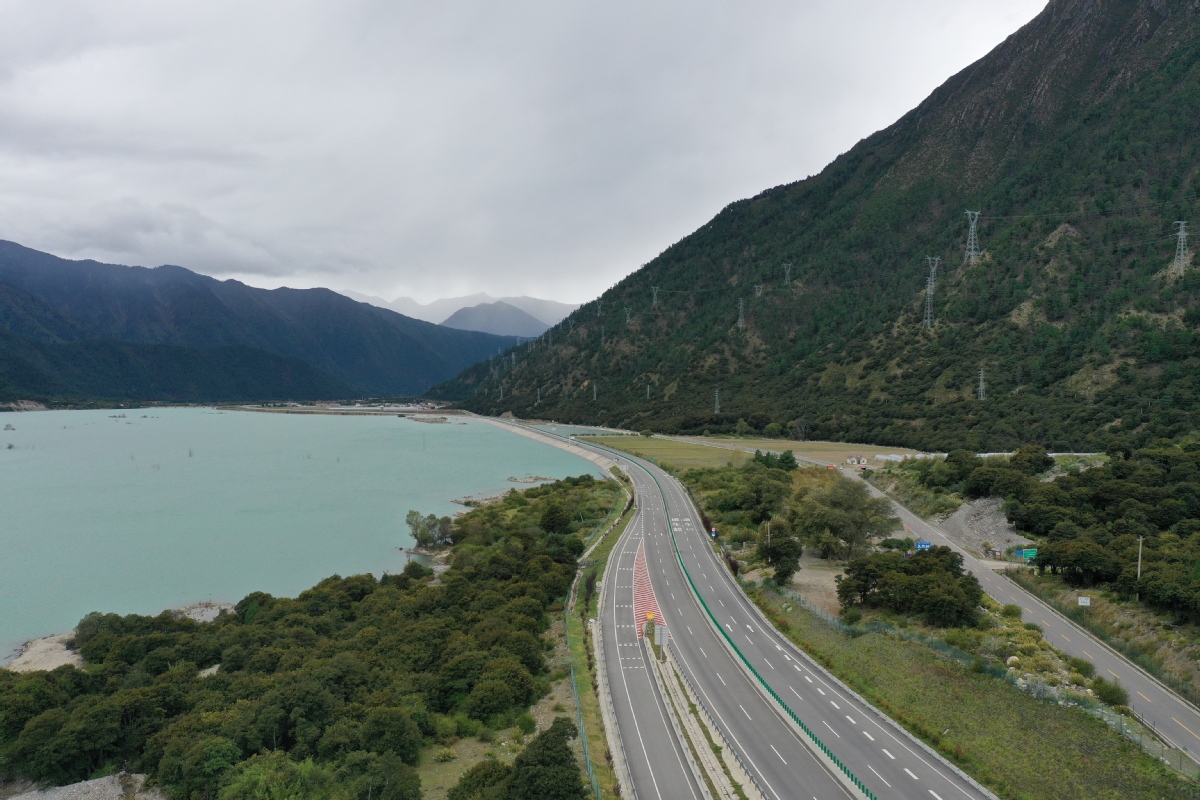
Region's Party secretary: Govt investment over seven decades has created 'miracles'
The building of roads and other infrastructure funded by government investment has helped transform the Tibet autonomous region into a prosperous new world, according to the region's leaders.
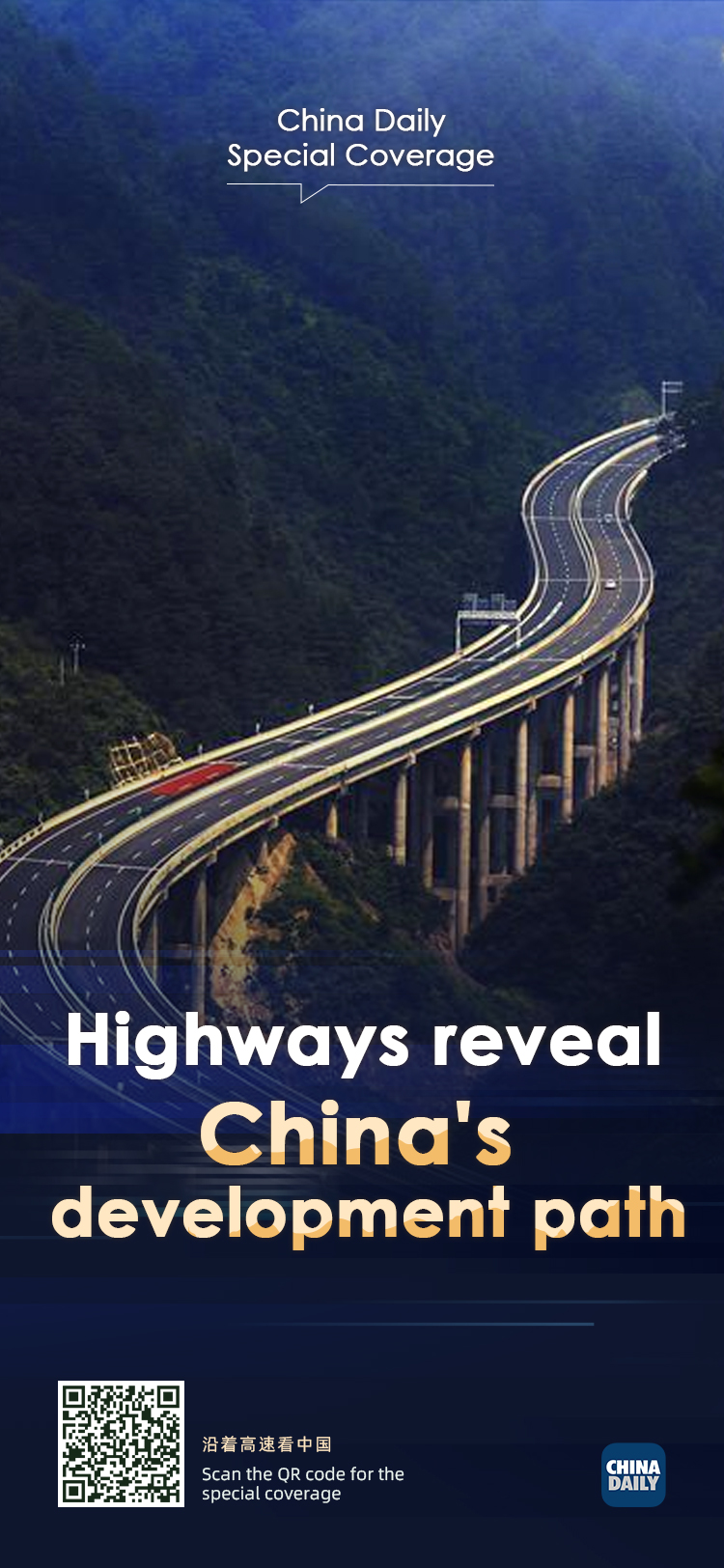
Over the past decades, China has built more than 160,000 kilometers of expressways, connecting hundreds of millions of people.
China plans to build or rebuild 25,000 kilometers of expressways during the 14th Five-Year Plan period.
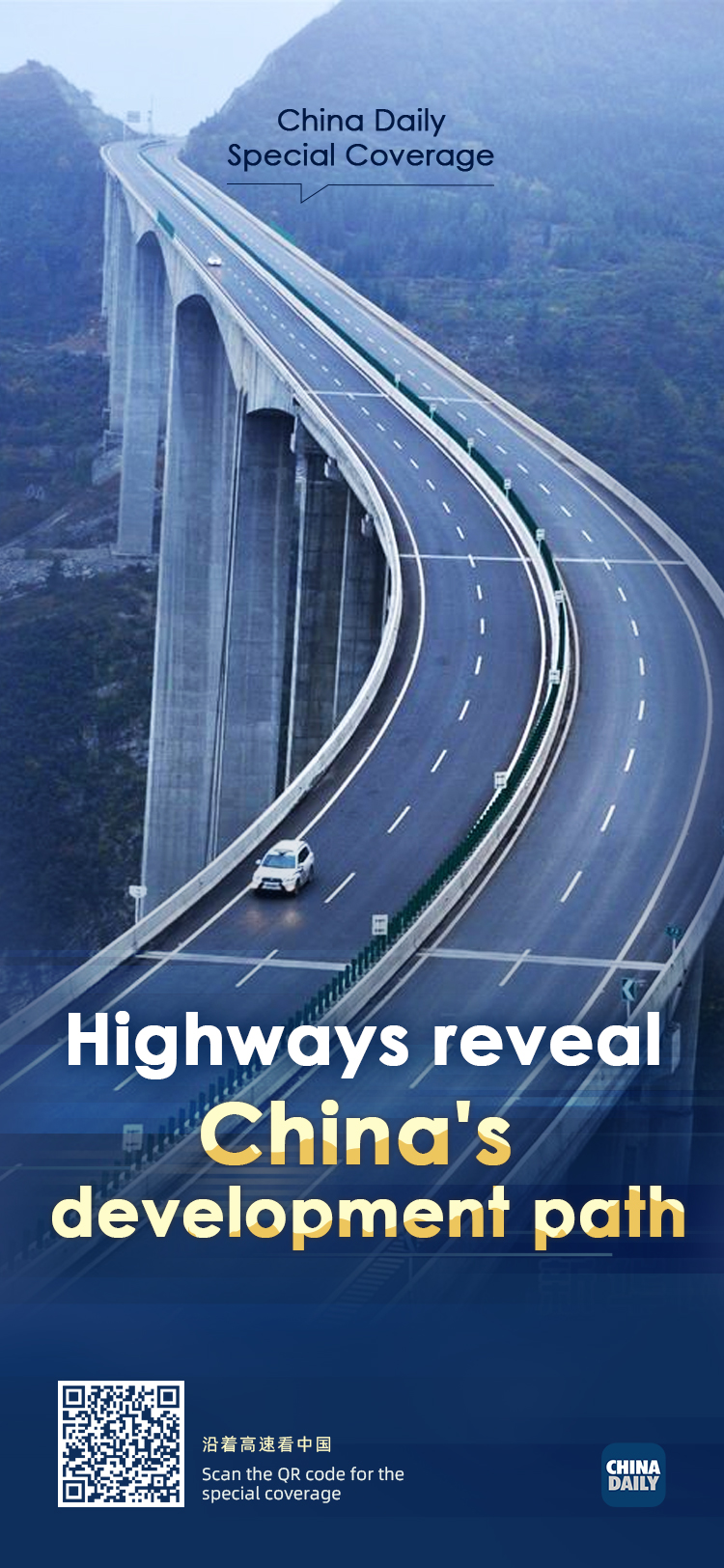
Over the past decades, China has built more than 160,000 kilometers of expressways, connecting hundreds of millions of people.
The total mileage of China's road network stood at about 5.2 million kilometers as of the end of 2020, according to the Ministry of Transport.

Driving along the Chongqing section of the Baotou-Maoming Expressway, travelers will encounter the majestic White Horse Mountains, site of a major battle in 1949 during the War of Liberation (1946-49).
Now this beautiful land, where hundreds of martyrs were buried, is undergoing large-scale development to become a travel destination. People here have been lifted out of poverty in recent years, striving for a better life. But one cannot forget the sacrifice of the soldiers who fought for a bright future for coming generations.

Mo Shuifeng moves swiftly and expertly between the vegetables she grows for guests in her garden in Hetang village, Zhongshan county, Hezhou of Guangxi Zhuang autonomous region.
She feels she is dreaming. Just five years ago she was living in poverty because of the financial burden of her children's school tuition.

Rich experiences await those who want to get a feel for the heroism and patriotism of past generations
At 7 am, students stood ramrod straight as they sang the national anthem during the flag-raising ceremony at Zhaojin Beiliang Red Army Primary School in Zhaojin town, Tongchuan, Shaanxi province. The song was followed by another about how young people bugle and vow to support the rejuvenation of the country.
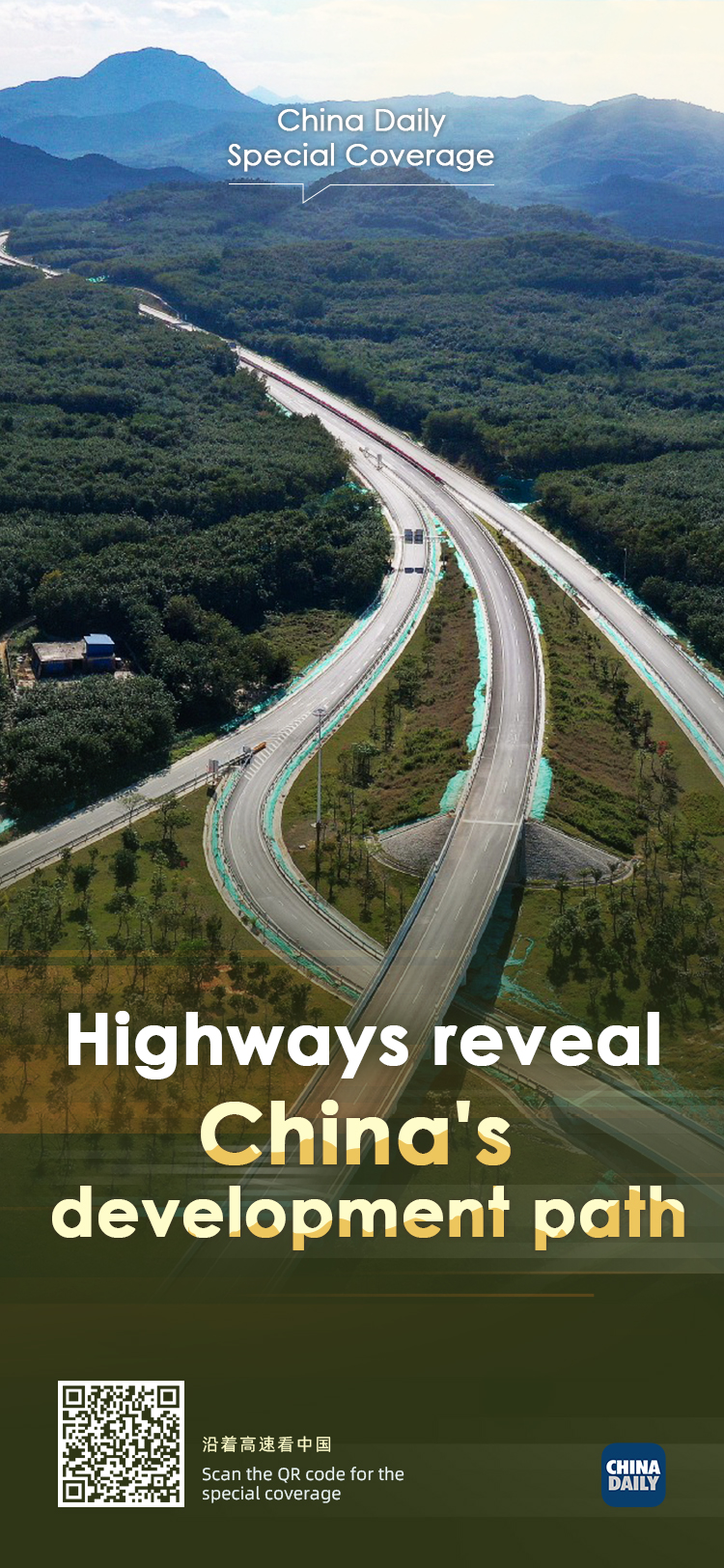
China has built the world's largest expressway network, with a total length of 160,000 kilometers by the end of 2020. Currently, the network has embraced 98.6 percent of cities and regions whose urban population exceeds 200,000. By 2035, the network will cover all cities and counties with a population exceeding 100,000.
China has created the world's largest expressway network, connecting hundreds of millions of people.
As China's expressway network expands and improves, the country's progress will also keep rolling along with it.
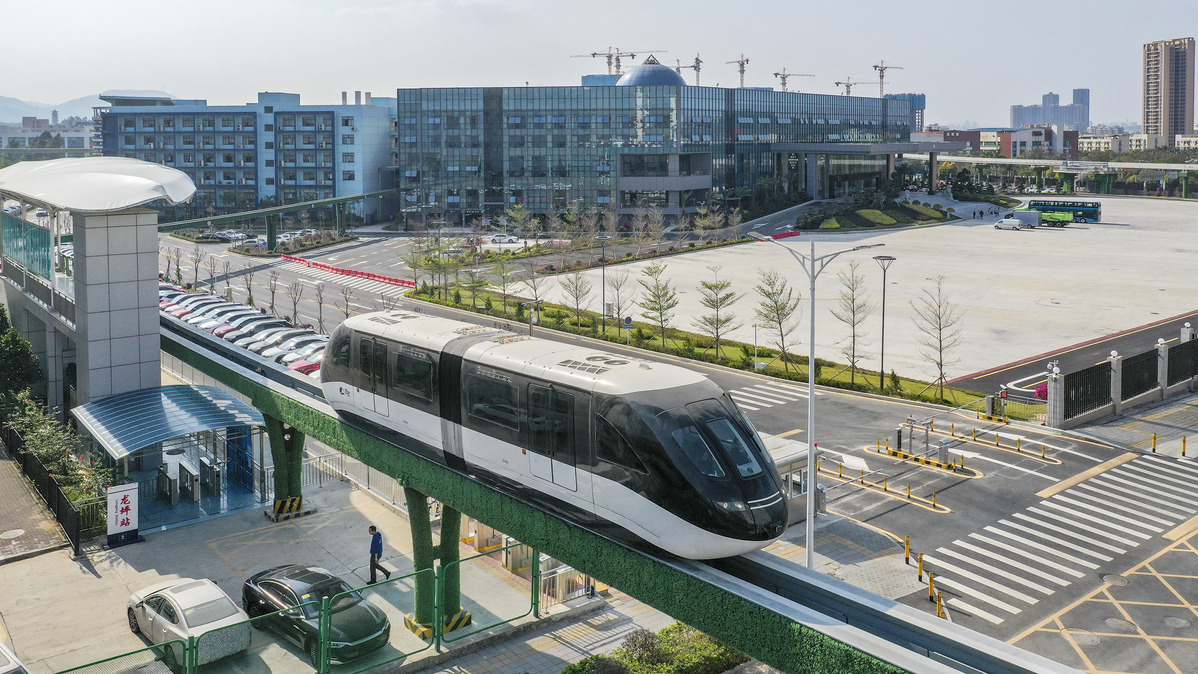
Greater Bay Area makes major gains over long term from infrastructure thrust
Su Xiuyi bought a sewing machine from Taiping Handbags Factory when the first export-oriented processing factory in China closed its doors in 1996.

Tech giant Foxconn's investment in Guangdong province, an economic powerhouse in South China, has developed since the 1980s in a way similar to the route of the Guangzhou-Shenzhen Expressway.
"Our investment in Guangdong was particularly concentrated along the expressway between Guangzhou and Shenzhen in recent decades," Terry Gou, founder of Foxconn, said in an earlier interview.
